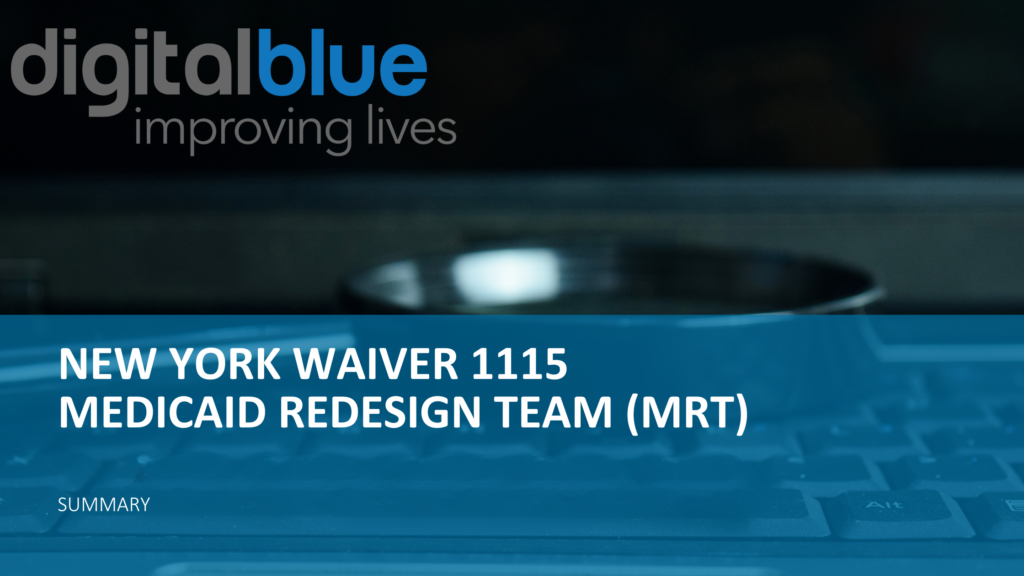
New York State’s Medicaid Section 1115(a) demonstration, known as the “Medicaid Redesign Team” (MRT), is a 239-page document that was passed on January 9th, 2024. This amendment by the Centers for Medicare & Medicaid Services (CMS) encompasses several key initiatives to advance health equity, reduce health disparities, and enhance the delivery of health-related social needs (HRSN) services. Digital Blue, a leader in using AI and intelligent automation to improve lives, has utilized ChatGPT to summarize its significant components.
Health-Related Social Needs (HRSN) Services
Waiver 1115 includes the establishment of Social Care Networks (SCNs) across New York State. These networks will provide HRSN screening and referral services to Medicaid beneficiaries. CMS has authorized significant funding (up to $3.173 billion) for increased coverage of services addressing HRSN.
Nutrition Interventions and Housing Support
Specific interventions, such as nutrition support for high-risk pregnancies and short-term housing support, have been approved to assist in stabilizing the living conditions of eligible Medicaid beneficiaries.
Managed Care Integration
The state plans to integrate HRSN services into managed care systems, aiming for full integration by March 2027.
Workforce Development
Waiver 1115 includes workforce recruitment and retention initiatives, with significant funding (up to $694 million) for these purposes. Programs like student loan repayment and Career Pathways Training (CPT) are part of this effort.
Health Equity Regional Organization (HERO)
The establishment of HERO, funded up to $125 million, is designed to develop regionally-focused approaches to reduce health disparities.
Medicaid Hospital Global Budget Initiative
Waiver 1115 supports financially distressed safety net hospitals, focusing on population health and health equity and adopting a global budget alternative payment model.
Substance Use Disorder (SUD) Services
Waiver 1115 includes provisions for enhancing access to SUD services.
Continuous Medicaid Eligibility for Children
New York proposes continuous Medicaid eligibility for children up to age six to ensure consistent coverage.
Monitoring and Evaluation
The state must comprehensively monitor and evaluate these initiatives to assess their effectiveness.
Regarding the impact on SCNs in New York State, the amendment’s approval presents several significant opportunities:
Expansion of Services: SCNs will be at the forefront of expanding HRSN services, playing a critical role in screening and referring Medicaid beneficiaries to these services.
Enhanced Funding: With the allocated funding, SCNs can expect to enhance their infrastructure and service delivery capabilities.
Integration into Managed Care: SCNs will be integral in transitioning HRSN services into managed care systems, providing a more coordinated approach to healthcare delivery.
Partnerships and Collaborations: SCNs will likely see opportunities for new partnerships, particularly with workforce development initiatives and HERO-related activities.
In summary, waiver 1115 significantly impacts social care networks in New York State, positioning them as key players in the state’s efforts to address social determinants of health, reduce health disparities, and improve health outcomes for Medicaid beneficiaries.
This article was drafted using artificial intelligence. ChatGPT summarised the document in just over 1 minute.
Edited and published by Amanda Mahoney, Marketing Lead at Digital Blue.

